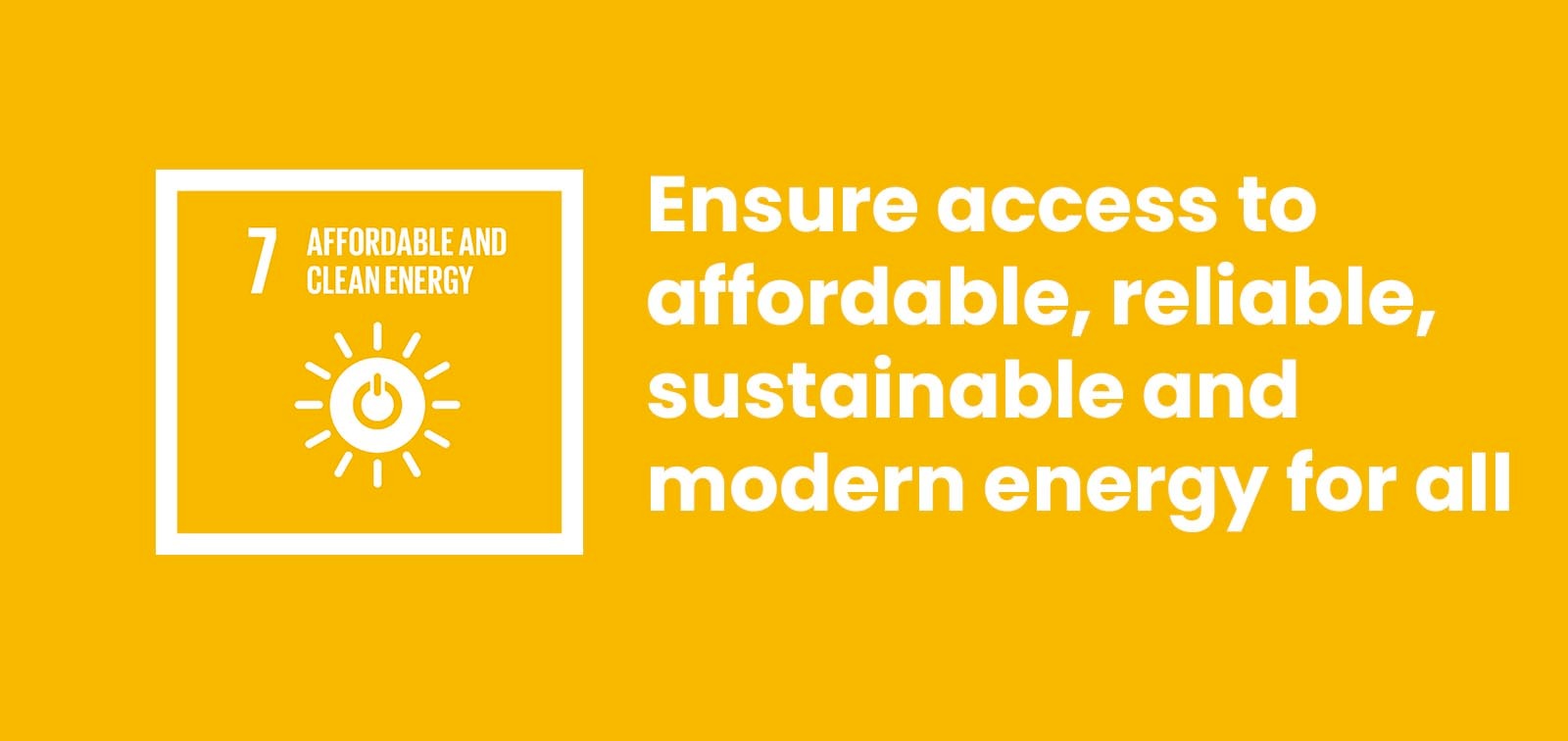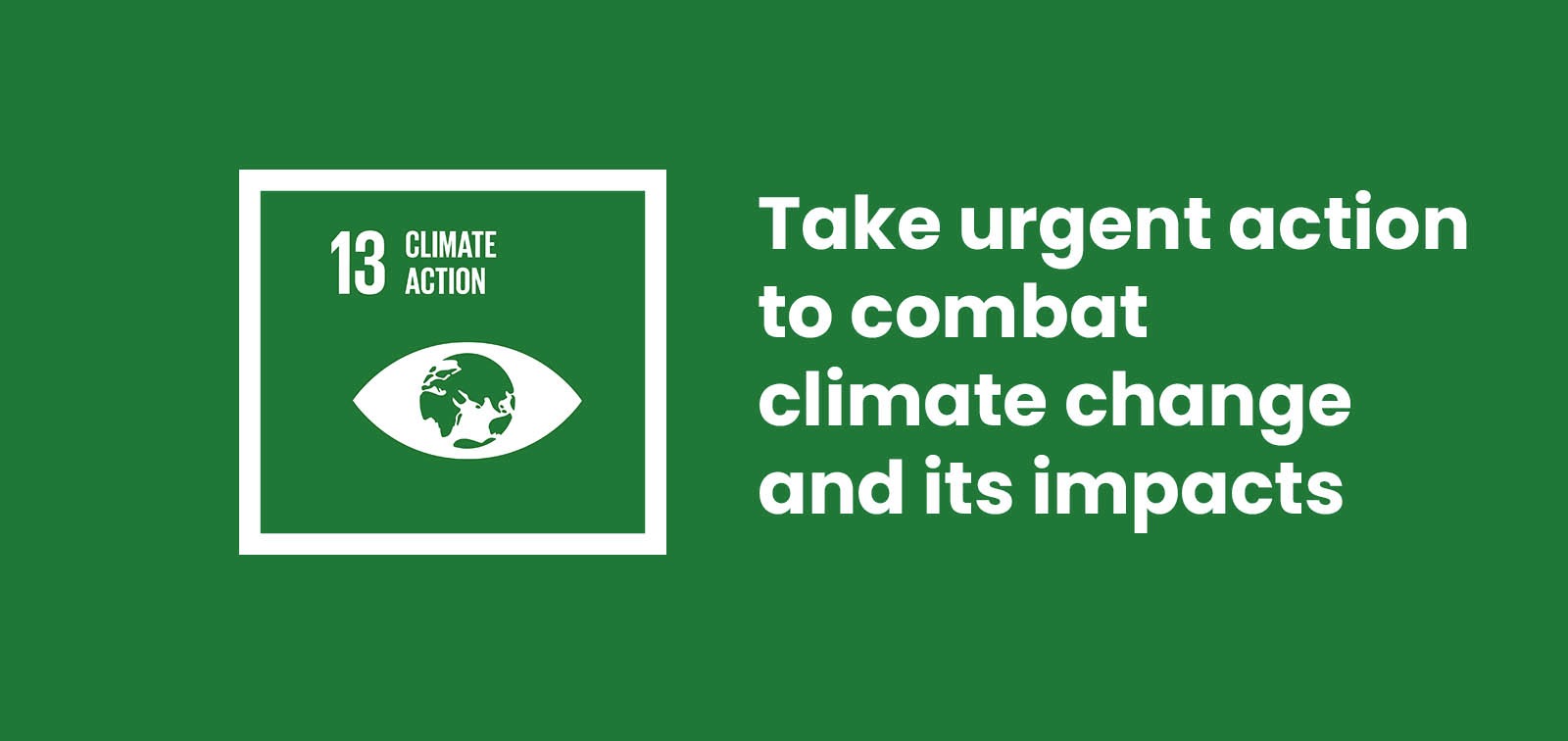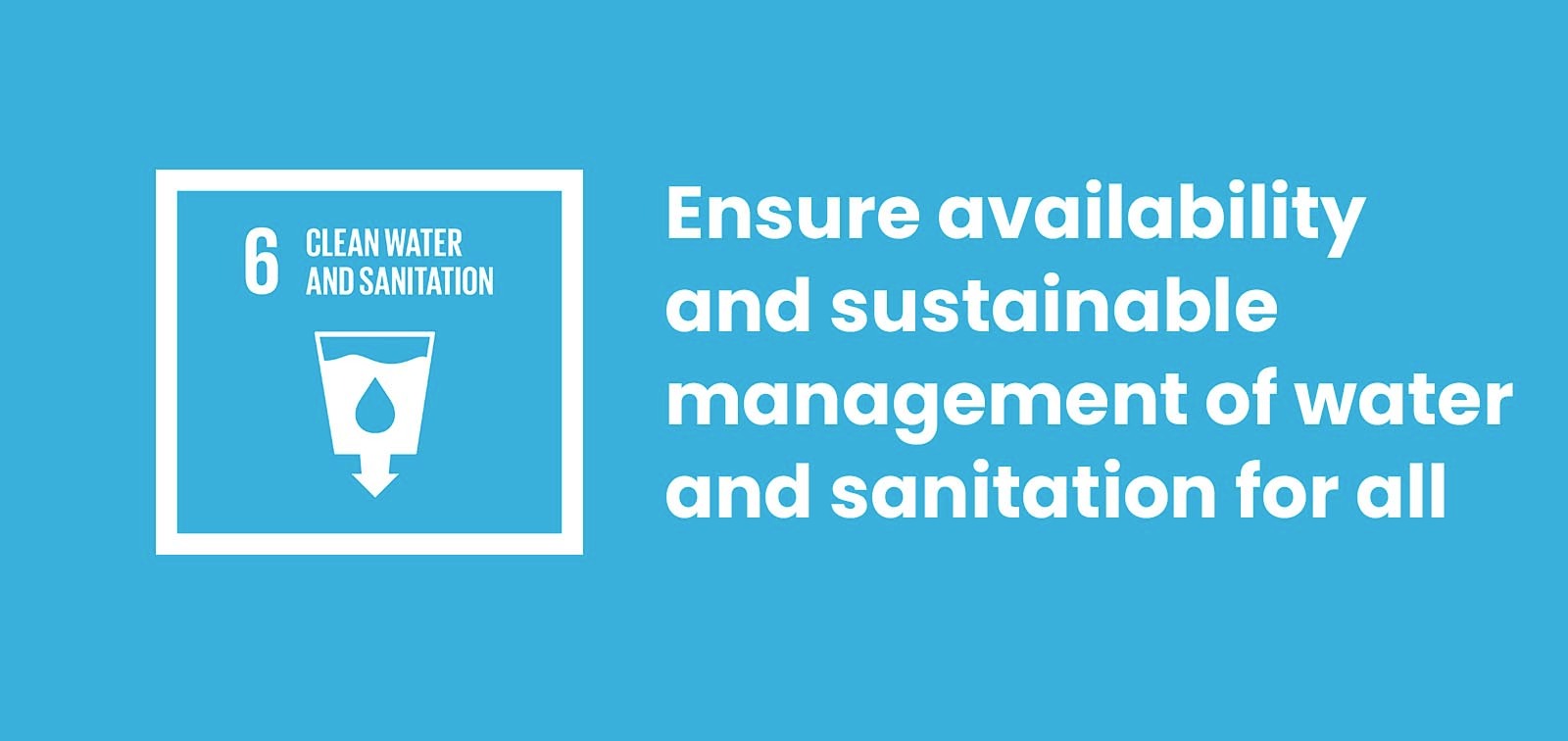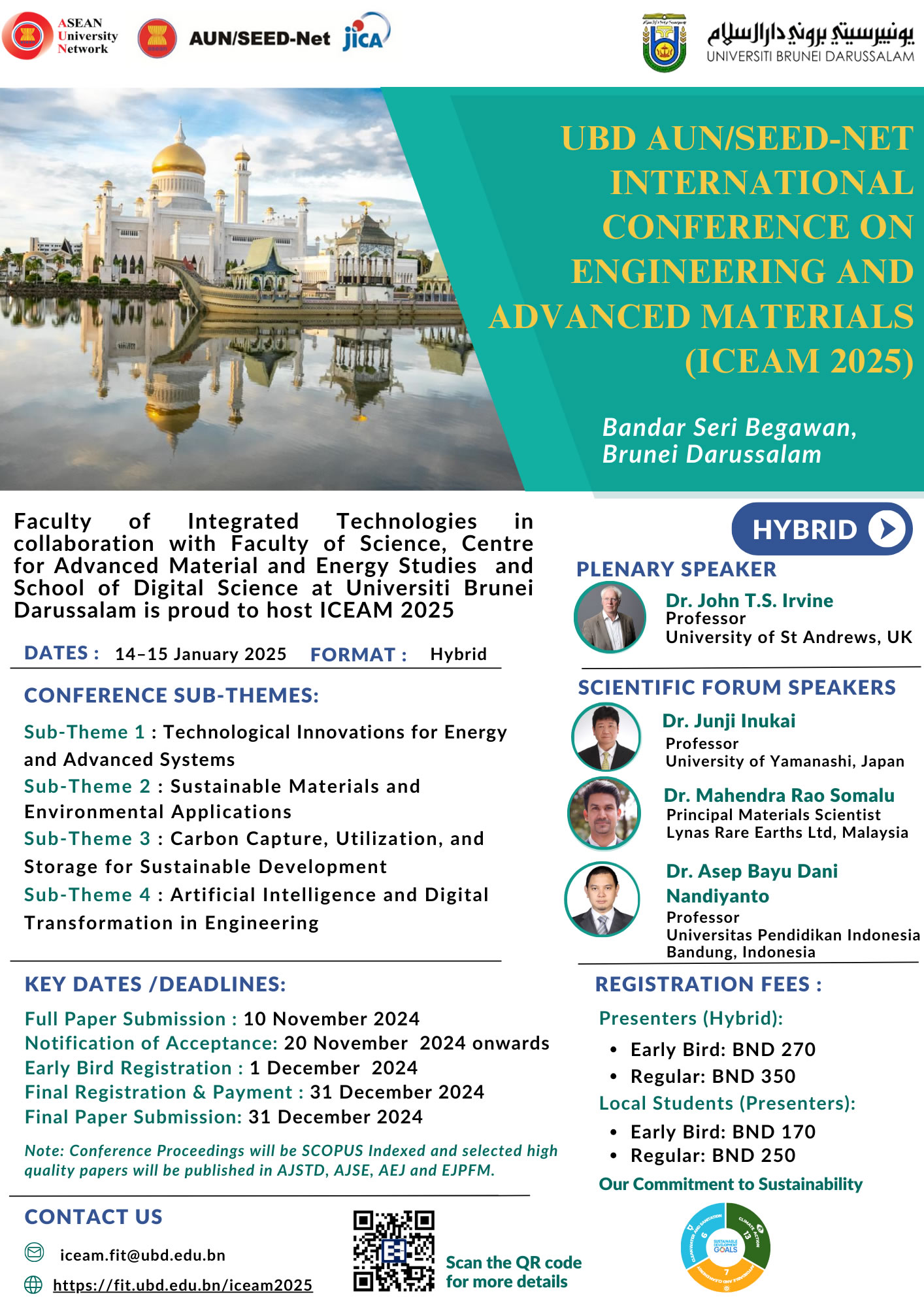The Faculty of Integrated Technologies (FIT) at Universiti Brunei Darussalam, in collaboration with the ASEAN University Network Southeast Asia Engineering Education Development Network (AUN/SEED-Net), proudly presents the International Conference on Engineering and Advanced Materials (ICEAM 2025). Scheduled for 14 -15 January 2025, this in-person event anticipates welcoming over 100 participants. ICEAM 2025 aims to serve as a dynamic platform for interdisciplinary exchange, focusing on the integration of various engineering and technology fields, with a key emphasis on materials and systems. Additionally, the conference will address pivotal themes in green and renewable energy.
The primary goal of ICEAM 2025 is to unite scholars, researchers, scientists, practitioners, and students in engineering and technology to explore emerging developments, share innovative concepts, exchange best practices, and discuss field experiences. By fostering dialogue, ICEAM 2025 aims to identify future research needs and technological advancements while facilitating potential collaborations and activities within each engineering domain. Moreover, the conference endeavors to extend the outreach of the AUN/SEED-Net Network by engaging diverse stakeholders such as government representatives, industry leaders, communities, professional organizations, and external partners across Asia, Europe, and North America. ICEAM 2025 also seeks to facilitate the exchange of recent research trends, cutting-edge technology, and experiences among academia, industry, communities, and policymakers, particularly pertaining to prevalent regional challenges.
The Green Engineering offers an alternative vision for sustainable development and inclusive growth with the aim of generating improvements in the standards of living of all citizens. It is also important to note that the transition towards a green economy can only be achieved by pursuing sustainable technological change. Equally important is that the issues and challenges involved in such transition, possible solutions and the mechanism to achieve specific goals must be adequately understood by all stakeholders, including professionals, practitioners, businesses and policymakers. Such distributional effects should be looked at in the context of regional dimensions with the need for reskilling and upskilling of the workforce to reduce the risk of rising unemployment, poverty, and inequality.
Although the main theme of this conference is about ‘Sustainable Engineering and Materials’, the expectation includes papers in other related areas (sub-themes) within the field of engineering, advanced materials, hydrogen technologies, fuel cells, renewable energy, environment, and bioengineering and the applications of AI and data analytics in engineering and material research.



